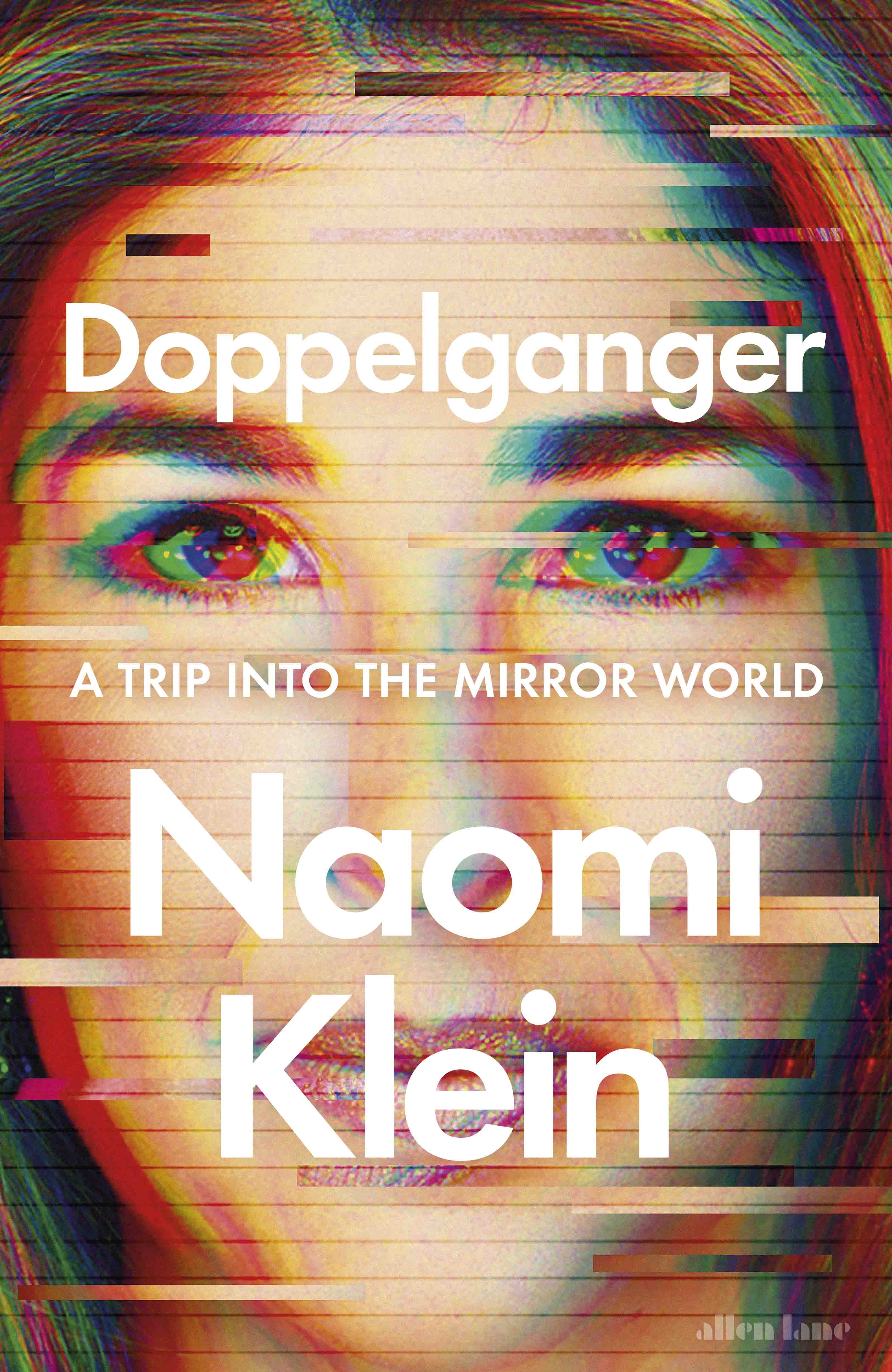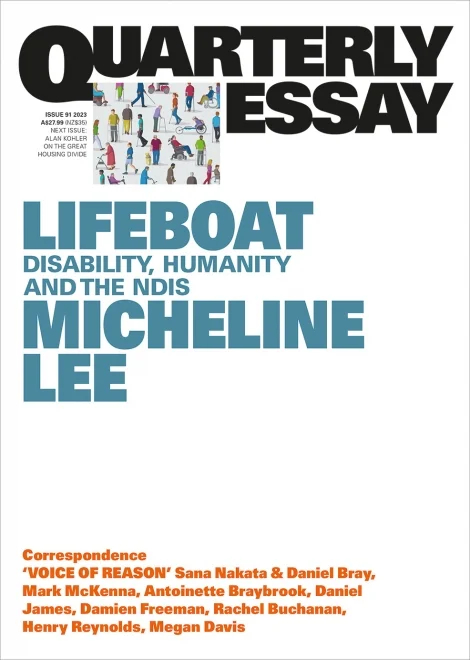Diary of a Book Addict: Coming to grips with the great divide
This month, our columnist examines three books that seek to understand the increasing polarisation of the post-2020 world.


There’s a story I keep hearing since the COVID lockdowns: of families or friendship groups that have become fractured post-2020 – sometimes irrevocably, sometimes by degrees – by differences of political opinion they’d once silently agreed to minimise or ignore. Why?
Perhaps it was the heightening of the stakes. After March 2020, it was no longer just reading different media, voting for different parties or even having different “facts” that separated us. Both sides – pro- and anti-lockdowns and vaccinations – genuinely felt like the other was the enemy of their interests. In confronting a global crisis and sudden, large-scale change, it became harder to keep inhabiting diametrically opposed worlds, side by side, without our choices affecting each other.
In her fascinating, sometimes sprawling, new book, Doppelganger: A Trip Into the Mirror World (Allen Lane), anti-capitalist researcher and writer Naomi Klein plumbs the depths of our post-2020 political polarisation, by following an obsession with her public “doppelganger”, Naomi Wolf – which takes her into the heart of the “Mirror World”. Inhabitants include Tucker Carlson, Donald Trump, wellness influencers, and anti-vax “momfluencers”.
Wolf, the author of 1993 feminist classic The Beauty Myth and one-time consultant to Al Gore, is now a passionate anti-vaccination activist and regular guest on Steve Bannon’s podcast. The two brown-haired, blonde-highlighted Jewish authors of books of ideas were confused with each other often enough that there’s a famous joke circulating the internet. (“If the Naomi be Klein / you’re doing just fine / If the Naomi be Wolf / Oh, buddy. Oooof.”)
“What is it called when a society divides into two warring factions, both of which are convinced that the other has been replaced by doppelgangers?” she writes. That, she says, is at the heart of the divide: we each think our own side is the one living in reality; the effect is to dehumanise the other.
Klein describes her work as “pattern recognition”. In her blockbuster 1999 anti-brand manifesto No Logo, she revealed how revolutionary iconography (such as images of Martin Luther King and Gandhi) was being co-oped to sell sneakers and computers, while “being used to hide and distract from the all-too-real shadow worlds that created the products being advertised”. (For instance, Nike’s sweatshop workers in China.)
Shock Doctrine (2007) explained how free-market capitalism has expanded through the tactic of using the public’s disorientation after a collective shock (wars, market crashes, natural disasters) to push through radical pro-corporate measures, all over the world – from Chile to the former USSR to Iraq.
Throughout her book, Klein rigorously questions her own (our own) complex complicity in how we got to this place. Her Shock Doctrine ideas have been warped and co-opted by people like Wolf and Bannon, she says, because she – and others like her – created a vacuum by tempering their critiques of government failures during COVID. We ignored the real ways tech companies and pharmaceutical companies were taking advantage of society’s rupture to usher in change, for fear of interfering with the messaging about our responsibility to work together as a society.
Her critique of the way the left no longer speaks effectively beyond its confines, and the way the right has co-opted the language of social justice, echoes Jeff Sparrow’s excellent Trigger Warnings (Scribe). Klein notices, too, that Bannon, whose podcast she obsessively listens to, skates over the traditional conservative issues (guns, abortions) that might spook newcomers to his political alliance (like ostensible feminist Wolf). The left has a tendency to do the opposite. “When we have differences, we focus on them obsessively, finding as many opportunities as possible to break apart.” This helps the right build a “MAGA Plus” coalition: the red-hats plus “Warrior Moms”.
She warns that, while liberals may find the spurious facts of Wolf and her ilk funny, to underestimate them is dangerous. At first, she was “focused on the many wrong facts she was sharing,” she writes of “Other Naomi”. And that’s easy to do! Just this week, Wolf has been doing the rounds of left-wing Twitter with this one: “Over 60 women whom I know get menstrual-type cramps when they are just sat next to vaccinated women for an hour or so, ie at a lecture or play, or when they stay in hotels where vaccinated women have slept.”
Klein writes of Wolf’s messaging: “The words she was saying were essentially fantasy. But emotionally, to the many people now listening to her, they clearly felt true.” I feel like Australians have experienced this before, with the rise of Pauline Hanson (who still lingers, of course) in the late ’90s. Her grasp of facts – and her unfamiliarity with the word “xenophobic” – was irrelevant to her supporters; the sense of disempowerment she harnessed felt true to them. She gave them a narrative to explain their feelings and, like Klein says of Wolf, “something to do”.
What’s more, Wolf’s words often tap into something true. Both sides of the “Mirror World” can see that the world is broken; they just have very different explanations for why and how to fix it. And the irony, she admits, is that many conspiracies – like the CIA-backed coup in Chile and ExxonMobil’s exploitation of the war in Iraq, which she charts in Shock Doctrine – are verifiably real: “The system is rigged, and most people are indeed getting screwed.” But the root cause of these conspiracies is both simpler and harder to fight than a cabal of evil individuals (like MAGA bogeymen Dr Anthony Fauci or Bill Gates). It’s built into the structure of neoliberal capitalism and its privileging of money over everything else. The bogeyman is the system.
Klein’s rigorous questioning and the way she – like so many of my favourite authors – doesn’t spare herself on the page is one of the things I love about this book. This very serious book is spiked with dark wit and playfulness, too. In one hilarious scene, she pulls over by the side of the road on the way to a much-needed back pain appointment to take notes about the Steve Bannon podcast she’s listening to, despite herself. Snippets of her personal life – her charming autistic son (in an excellent and moving chapter on vaccines, autism and eugenics), her political candidate filmmaker husband, the friends amazed at her Steve Bannon listening habits – are folded in with her analysis, along with riffs on books and films that speak to her theme.
And while I occasionally felt like the doppelganger metaphor was overlaboured, or was getting sick of Naomi Wolf, I mostly enjoyed the metaphor – and though Wolf initially seemed gimmicky as a narrative device, the deeper I got into the book, the more apt it seemed as a path through the Mirror World. If you enjoy a book that invites you on an intellectual journey, as I do, I highly recommend Doppelganger.
Last week, the Royal Commission into Violence, Abuse, Neglect and Exploitation of People with Disability released its final report. Its 222 recommendations include three major recommendations aimed at ending segregation of people with disability: phasing out “special” schools, segregated employment and group homes.
In Micheline Lee’s new Quarterly Essay: Lifeboat – Disability, Humanity and the NDIS (Black Inc.), she shares her frustration at how the 10-year-old National Disability Insurance Scheme (NDIS) has, in many ways, made Australian society less rather than more inclusive.
A novelist, former human rights lawyer and painter, Lee has lived with a motor neurone disability from birth and uses a wheelchair. “Without the NDIS, I wouldn’t be able to pay for the support workers I need to live independently in my home,” she writes. Living alone for the first time, in the aftermath of a break-up with her long-term partner and her son leaving to study overseas, the NDIS has been essential. And yet.
Since the NDIS, she finds people in general have been less willing to help with small, basic tasks they’d always routinely helped with: they expect a paid person should be there to do them. At  the airport for a flight to speak at a writers’ festival, one staff member after another disapprovingly asks “where’s your carer?” when she asks for small accommodations, like lifting her bag from her wheelchair onto the screening table. (In this particular instance, she reports a woman behind her muttering, “Unbelievable” and lifting the bag for her.)
the airport for a flight to speak at a writers’ festival, one staff member after another disapprovingly asks “where’s your carer?” when she asks for small accommodations, like lifting her bag from her wheelchair onto the screening table. (In this particular instance, she reports a woman behind her muttering, “Unbelievable” and lifting the bag for her.)
I knew, through the grapevine, that the NDIS can be difficult to access, and then difficult to manoeuvre if you do. (“Every year, weeks before my planning meeting, I am fearful,” Lee writes.) But until I read Lee’s powerful essay, I hadn’t thought about the impact of the market-based origins of the NDIS – which was conceived as an “insurance” scheme rather than welfare, to ensure long-term bipartisan support.
In one astonishing passage, she recounts her second NDIS planning meeting, where the planner tells her the funding in her plan should be reduced each year “as you become better and more independent”. Lee tells her this won’t happen: her condition is progressive. She writes:
“If anything, I will need more supports next year, not less,” I said.
There was a pause on the other side of the phone. “This is an insurance scheme,” she said coolly. “We need to follow the insurance approach.”
In this “neoliberal” scheme, where people with disabilities “exercise choice and control … through empowerment as a consumer”, the many problems include untrained service providers, difficulty accessing support in rural and regional areas, and supports that are unprofitable for providers simply not made available. As well as, of course, the widespread abuse and neglect on the part of unscrupulous providers that was documented by last week’s Royal Commission.
Lee’s Quarterly Essay combines a fierce, forensic critique of the NDIS system with gratitude for its existence – and a demand for reform that will restore the balance between human need and dignity and the necessities of the market. It’s an excellent essay. And exactly the kind of activism Naomi Klein argues we need more of.
Jeff Sharlet opens and closes his exquisitely written, forensically observed book, The Undertow: Scenes from a Slow Civil War (Norton) with essays devoted to Black performers Harry Belafonte, once the biggest Black stars in America and a close friend and supporter of Martin Luther King, and Lee Hays. It feels as though he’s elevating the voice of Black America in the conversation he invites us into: a conversation that will explore Whiteness in what he calls the “Trumpocene” – the age of Trump. Like Klein (who also incorporates a critique of race and power) he’s interesting in exploring America’s deep divide, in an attempt to understand it.
His relatively slender second essay, “On the Side of Possibility”, a meditation on Occupy Wall Street, has a dreamlike quality. He writes: “The protestors were fools – but in the holy tradition, the one that speaks not truth to power but imagination to things as they are.” It’s a glimpse of society’s potential before the rise of Donald Trump: a different kind of rebellion to the January 6 uprising.
On the ground at Occupy Wall Street, a movement that deliberately had no demands, the banning of megaphones in the park leads to a human microphone. “One person speaks, the crowd repeats, everybody hears the crowd and their own voices.” It’s both an adaptation to necessity and a metaphor for collaboration. (Interestingly, Klein begins her book with the same historical  moment; she both praises the human microphone and begins her Other Naomi obsession here, after she overhears two girls mixing them up.)
moment; she both praises the human microphone and begins her Other Naomi obsession here, after she overhears two girls mixing them up.)
And then we’re at a Trump rally. Sharlet, who will later start wearing a MAGA hat to rallies to blend in with the crowd, quotes a supporter: “He stands up there and says what we all think … We all want to punch somebody in the face, and he says it for us.” Sharlet blends in not just to aid his reporting, but from caution.
Trump’s appeal doesn’t feel political, so much as religious, observes Sharlet, a seasoned writer on the religious dimensions of American politics. The “closest analogue to Trumpism”, he reflects, is “the prosperity gospel, the American religion of winning”. In fact, Trump names his childhood pastor, Norman Vincent Peale, author of The Power of Positive Thinking, in his “personal trinity”, along with his father and Roy Cohn. He tells crowds Peale thought he was “his greatest student of all time”.
Sharlet’s eye for telling detail is unmatched; while I was keen to read this book for its reportage and analysis, I luxuriated in his prose. And I admired the way he can damn his most dubious subjects by simply recording what they say and do (letting them tell on themselves).
It’s particularly present in his chapter on a second-generation celebrity pastor, Pastor Rich, who brags about his resemblance to Leonardo DiCaprio and says of social justice, “the moral conversation is one I don’t get into”. Oh, and he married Kim and Kanye. I loved this description of Pastor Rich’s Bible study group meeting: “The Bible is hard, its stories old, so this week they were starting what would be an immersion into one of Rich’s favourites, the bestselling Seven Habits of Highly Successful People.”
Taken together, this collection of linked essays focuses on reporting back, as Klein might say, from the MAGA Mirror World. The title essay, “The Undertow”, told in 12 parts, which comprises almost a third of the book, takes Sharlet across America to tell the story of Ashli Babbitt, the insurrectionist, QAnon adherent and former member of the US Air Force who was killed in the Capitol attack.
One man at a bar tells Sharlet he doesn’t like Trump’s racism, but will vote for him anyway, because he’s promised to bring back the steel mills. Later, he admits he knows no politician can perform that resurrection, but he’ll vote for Trump because at least he said he would. “Don’t it feel good, at least, to believe?” he says.
As Klein writes, it’s not about the facts. It seems to be about the feelings – and who can offer the most appealing story.
Jo Case is a monthly columnist for InReview and deputy editor, books & ideas, at The Conversation. She is an occasional bookseller at Imprints on Hindley Street and former associate publisher of Wakefield Press.
This article is republished from InReview under a Creative Commons licence. Read the original article.
InReview is an open access, non-profit arts and culture journalism project. Readers can support our work with a donation. Subscribe to InReview’s free weekly newsletter here.
![]()




